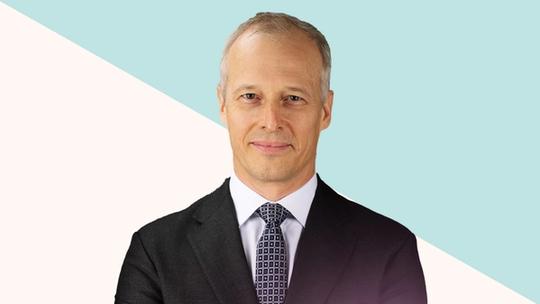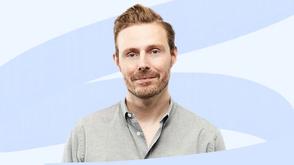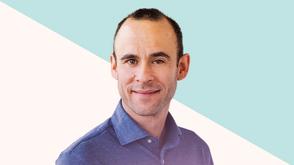Podcast – Ep.1 Derek Rozycki, Head of Responsible Investing, Mubadala


At COP29, Bahare Haghshenas, EQT's Global Head of Sustainable Transformation spoke with Derek Rozycki, Mubadala's Head of Responsible Investing. Scroll to the bottom of this article to watch the full episode.
TRANSCRIPT:
Bahare Haghshenas: Hi, Derek.
Derek Rozycki: Hi, how are you?
Bahare Haghshenas: I am absolutely great. So amazing to have you here.
Derek Rozycki: Very pleased to be with you all. You're a good partner for us. We do a lot with your organization.
Bahare Haghshenas: And I am looking forward to hearingwhat you are thinking about COP so far.
Derek Rozycki: You know, I think one of the biggest takeaways that I have, and I’ve only been to three COPs.
Bahare Haghshenas: Only? This is my first.
Derek Rozycki: Well, one of the ongoing discussions we see in the public domain is the integration and people’s views on whether or not businesses should be close to the COP process. I am convinced more than ever that we need to find a way to bring the actions and the operationalization that businesses and the public are taking to bring climate action to life closer to the COP process. The COP process is fantastic at creating ambition and consensus and bringing the science together in a real and tangible way while also providing strong overarching guidelines.
At the end of the day, we have to bring this into the real world and operationalize it. Business is a really important avenue through which that’s going to happen.
While we need to maintain the independence of the COP process, we really need to find that interface and bring that connectivity together so we can translate NDCs into tactical action around the world.
Bahare Haghshenas: And if we then link that to the main theme of this COP – being the Finance COP – why is that important? And why is it important from our perspectives?
Derek Rozycki: When you think about transition finance, it’s such a nebulous and broad topic. It can mean anything from investing in renewables in emerging markets versus developed markets, and those are two completely different processes with different barriers and solutions to those barriers.
It could mean investing in a coal plant with a real ambition to transition it or decommission it, or it could be climate tech. Each of these is incredibly different and faces distinct challenges.
I think one of the things happening here is that we’re starting to delineate the particular challenges in a clearer and more concise way for each of these different venues of activating capital to drive change.
This is a really important place to bring dialogue and stakeholders together to find solutions to accelerate the deployment of capital.
Bahare Haghshenas: Many would say we still need to balance climate goals and financial returns. What’s your view?
Derek Rozycki: So, I would say that not only my view but Mubadala’s view is that there’s no trade-off between these things. They’re fundamentally linked.
If companies aren’t thinking about the physical risks they’ll face from more adverse weather events, as we’ve seen accelerate just in the last 18–24 months, they’re putting the financial profile of their company at risk.
If they’re not thinking about changes in regulations, bringing climate considerations into their day-to-day business, or looking for opportunities where markets are moving, they’re not maximizing their return or optimizing their risk-return profile.
At Mubadala, we’ve moved from qualitative discussions to more data-intensive, quantitative analysis of how climate impacts returns in terms of opportunities and risks.
“If companies aren’t thinking about the physical risks they’ll face from more adverse weather events, as we’ve seen accelerate just in the last 18–24 months, they’re putting the financial profile of their company at risk.”
Bahare Haghshenas: How is that received within the organization and your ecosystem?
Derek Rozycki: With open arms, actually. We’re incredibly fortunate to have great leadership at Mubadala fully behind integrating climate into our investment lifecycle process.
From the strategic allocation of capital today and into the future, down through the tactical pieces of the investment lifecycle, we’re guided by three core pillars:
1. Deploying capital purposely and with intention, often following megatrends like climate change.2. Driving transformational change at the companies we own and with our partners, such as yourselves.3. Convening and converging with peers and partners to amplify collective action.
We try to simplify the “alphabet soup” of climate initiatives and find more focused ways to work together and align efforts.
Bahare Haghshenas: Is the “alphabet soup” one of the major barriers, or do you see other areas where fine-tuning or acceleration is needed?
Derek Rozycki: I think the alphabet soup is certainly challenging. There are too many organizations moving in too many different directions, so it feels like herding cats right now.
However, large organizations working together with real intention can blaze a path to stronger climate integration. Instead of making it a bureaucratic, slow-moving process, collaboration provides a clear roadmap to effective integration, which accelerates things.
Bahare Haghshenas: When I read your profile, Derek, I’m curious. You come from banking and CFO roles. How did you end up in this space?
Derek Rozycki: First and foremost, I grew up in Vermont – where Bernie Sanders is from – so I come from a liberal background. My family spent a lot of time picketing and marching when I was young.
When I went to college and took my first job in banking, specifically in oil and gas, a professor I worked with in Sub-Saharan African development was very disappointed in me for choosing that path. He felt I’d gone to the “dark side.”
I told him, “I’ve done the picketing on the outside. Now, I want to be on the inside, influencing decision-makers.” We didn’t have the term ‘stakeholder capitalism’ then, but that’s what I was aiming for.
Over the arc of my career, I have found myself at one of the largest sovereign wealth funds in the world, leading a responsible investing team. We’re integrating climate and sustainability into our organization and helping peers do the same. It’s exciting to be in a values-based organization ready to make a difference.
Bahare Haghshenas: And if you were to give advice to bankers and CFOs who should—or already are, but should more actively—engage on this agenda, what would you tell them? I mean, you’ve done that journey yourself.
Derek Rozycki: I’ve done a lot of project financing in my time, getting involved in environmental and social impact assessments and the Equator Principles. That’s the history and angle I bring to this process.
One of the challenges financial markets face is seeing sustainability as just an opportunity to sell products. We need to make it more than that.
We need to be genuine and humble about where we are in this industry’s development. It’s still at a nascent stage, with a lot of immaturity in data sets and models.
We need to recognize that and give space for innovation and that we’re doing the best we can with early-stage models. Mistakes will happen, but that’s part of the process.
Bahare Haghshenas: And learn from them.
Derek Rozycki: Exactly. Mistakes are essential to improving processes over time. One of the biggest challenges in sustainability is equating high integrity with perfection. That mindset prevents us from launching solutions.
At Mubadala, over the last three years, we’ve focused on finding 80 percent solutions – launching them, addressing the gaps, and iterating quickly. Humans have an incredible capacity to innovate and evolve, and that’s how we progress.
Bahare Haghshenas: How do you bring that perspective into your investment processes?
Derek Rozycki: Through active and agile dialogue. We’ve created an internal sustainable returns model, which looks at 19 different environmental, social, and governance mechanics.
It’s a high-level model, but it allows us to apply consistent institutional frameworks across a very broad $300bn portfolio that spans geographies, sectors, and asset classes.
This model ensures leadership has full visibility on all the issues that need consideration during the investment lifecycle. We’re not an impact or concessional investor – we need appropriate risk-adjusted returns, but we’re committed to deploying capital in an impactful way.
Bahare Haghshenas: And what results are you seeing?
Derek Rozycki: As we engage more with companies and build tactical fluency, they connect the dots across their organizations and see the bigger picture.
We’ve seen decisions we intuitively believed were financially sound prove even stronger when considering their broader impact. For example, we recently tried creating a blended finance model within Mubadala to drive decarbonization across our UAE-based portfolio companies.
We expected to find non-economic investments needing concessionary capital. But surprisingly, we identified over 150 energy efficiency measures, 85 percent of which had a 7 percentreturn or better. These were just smart investments.
Bahare Haghshenas: Was it because you brought this solution together?
Derek Rozycki: That’s a great question. It highlights that climate fluency at the operating company level isn’t fully there yet. Many projects are small, like changing lightbulbs, but they create significant returns when combined.
By aggregating projects, providing a consistent process, and acting as a dominant shareholder, we reduced costs by about five times compared to if each company had done it alone. We also created healthy peer competition, which built momentum.
Bahare Haghshenas: I imagine that approach – bringing sectors together – can create enormous acceleration, right?
Derek Rozycki: Absolutely. That’s why convening and converging is a core pillar of our approach. By working with partners like EQT, we can share best practices and proliferate them across our portfolio and beyond.
Despite challenges like geopolitics or consensus in COP processes, I believe this is the time for businesses to step forward. It’s just smart to be ahead of this, regardless of one’s stance on climate change.
Bahare Haghshenas: The business case in itself is strong.
Derek Rozycki: Exactly. Any win is a win. We want to build on that and facilitate progress wherever we can.
Bahare Haghshenas: And I hope we can continue building that platform between ourselves, inviting other LPs, GPs, governments, and the UN system to join us.
Derek Rozycki: We look forward to it.
The views and opinions expressed in this interview reflect those of the participants and do not necessarily represent the official policies, strategies, or commitments of EQT AB or its affiliates.
ThinQ by EQT: A publication where private markets meet open minds. Join the conversation – [email protected]
On the topic ofCOP29





